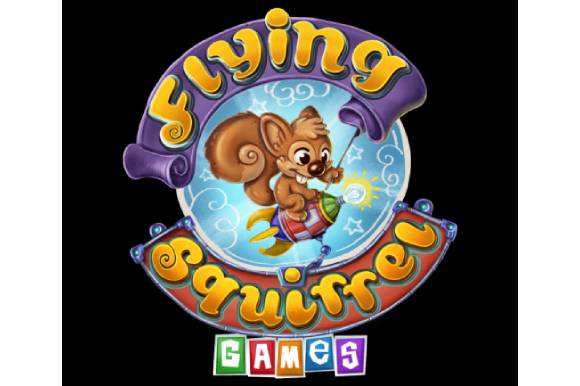 Founded in February 2015, the team at Flying Squirrel Games specialised in Mobile Free to play and Premium video games and entertainment content. The company has developed the popular DirtTrackin & Dirt Trackin Sprint Cars mobile racing games.
Founded in February 2015, the team at Flying Squirrel Games specialised in Mobile Free to play and Premium video games and entertainment content. The company has developed the popular DirtTrackin & Dirt Trackin Sprint Cars mobile racing games.
Flying Squirrel Games is also working on interactive digital books, city builders, story-based games and experiences using AR, VR and MR technologies.
Central and Eastern Europe is one of the most important locations for global games developers and studios, and artists in the region are increasingly working for both film and games. FNE looks at how these two sectors of the entertainment industry are converging and why this trend is important for the future development of both.
FNE: When was Flying Squirrel Games founded and what have been your main missions and strategic projects so far?
Anthony Demanuele: Flying Squirrel Games, a state-of-the-art game development studio located in Malta, was established in 2015 with a mission to craft captivating games for a global audience. Throughout the years, we have assembled a highly skilled team and achieved remarkable success in creating top-notch games for various platforms, including mobile, Nintendo Switch and Virtual Reality.
FNE: What is the current situation in the Maltese game industry and what distinguishes it from the industry of other countries?
Anthony Demanuele: Malta's game development industry remains relatively small in terms of numbers. However, the vision for game development in Malta is ambitious, aiming to contribute between 0.1% to 1% of the GDP over the next decade, which would result in the creation of up to 3,000 new jobs.
To achieve this goal, the country has made significant investments in establishing a robust foundation for game development. One such initiative includes the development of the Malta College for Arts, Science, and Technology (MCAST), as well as university programmes at the Institute for Digital Games, as well as partnerships with Unity Technologies™.
These strategic investments have led to a notable improvement in talent acquisition, making it considerably easier to find and recruit skilled individuals compared to previous years. Despite these advancements, the support for game studios in Malta still lags behind that of other regions.
FNE: Video games and films are fast approaching each other and colliding. How is that reflected in Malta? Are there any initiatives being launched that bring these two sectors together?
Anthony Demanuele: These are thrilling times as video games are now adopting techniques like film production, a possibility that was not available until recently. Malta boasts a robust film production industry; however, it has lacked cohesion up until this point. Nevertheless, there is optimism for a positive shift in this aspect in the near future!
FNE: Do you have any experience using VFX in terms of games? What can you tell us about your experience, vision of game cinematics and, important to mention, VR?
Anthony Demanuele: Visual effects (VFX) play a crucial role in enhancing the overall experience of both games and films, adding that extra touch of magic. Developing games for mobile platforms has long presented a challenge in incorporating impressive VFX without compromising performance. However, technology in this field is advancing rapidly, enabling the increased utilisation of particle systems in games, even on resource-constrained devices like mobiles and in virtual reality (VR) environments.
FNE: What can you tell us about your Prime-VR2 project?
Anthony Demanuele: Prime-VR2 was a three-year-long project funded by the European Union with 4 m EUR under the Horizon 2020 initiative. The project brought together a consortium of 14 members from various EU countries, including SMEs like Flying Squirrel Games, as well as universities and hospitals. One of the primary objectives of the project was to develop and construct a customised Virtual Reality controller capable of providing resistance feedback to players during their Virtual Reality experiences. This ambitious goal has been successfully achieved, and the team is currently exploring avenues for bringing this innovative controller to the market. (For more detailed information, please visit: https://prime-vr2.eu/).
FNE: Which Maltese games would you single out from your portfolio that have had international success?
Anthony Demanuele: It's tough to select just one game, so we'd like to mention two if that's alright! The first game is Nothing to Declare, a collaborative project with the Customs department in Malta, inspired by Lucas Pope's Papers, Please. Launched in 2018, the game received an overwhelmingly positive response. It will soon be available on all gaming consoles later in 2023.
Moving on to the second game, Dirt Trackin' 2 is a thrilling dirt racing game that has achieved significant success, ranking among the Top 10 best racing games on both the Apple AppStore and Google Playstore in the United States and other regions. The team is brimming with excitement about this game's achievements. Currently, they are hard at work on a next-gen racing game, scheduled to be released later in 2023 on all major mobile platforms, PC and gaming consoles.
FNE: Are there any films, animations and TV series from Malta that are being turned into games or games that are being turned into films, animations or TV series?
Anthony Demanuele: Not that we’re aware of.
FNE: How do you see the development of the relationship between the film and games industries?
Anthony Demanuele: Film and game development are two of the most prevalent and beloved forms of entertainment, captivating audiences of all ages. Over time, numerous games have adapted film narratives, yielding varying degrees of success. Conversely, although less common, some games have been transformed into films as well. Looking ahead, we anticipate this trend to persist, as the synergy between these mediums continues to thrive.
Yet, what truly excites us currently are the rapid technological advancements in game development tools. Innovations in motion capture, cinematics, lighting and visual effects have historically been prevalent in film production. However, these cutting-edge tools are now becoming increasingly accessible and integral to game development as well.
Witnessing the convergence of film and game technologies is a thrilling prospect, opening new creative possibilities and elevating the immersive experiences offered to players and audiences alike.




















